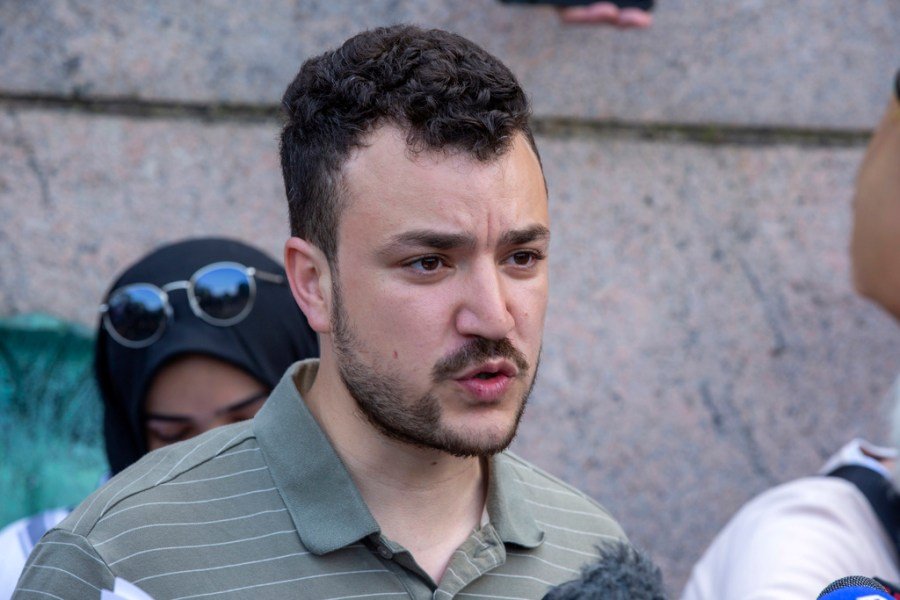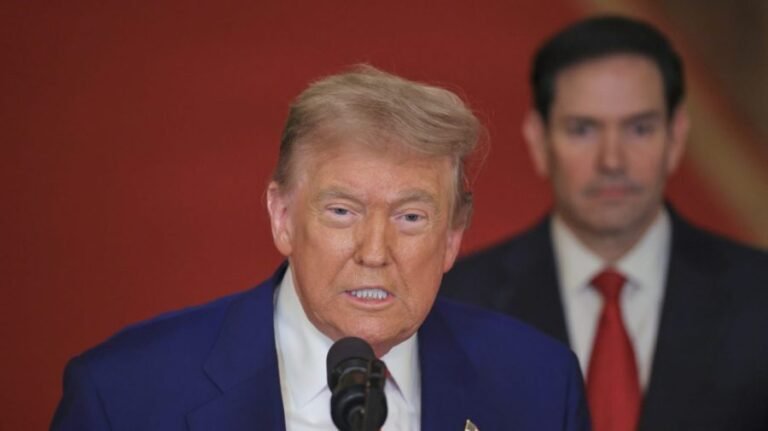
Is Columbia graduate student Mahmoud Khalil “pro-Hamas”? And did he make other students feel “unsafe”?
I don’t care, and neither should you. If you believe in free speech, Khalil’s opinions — and how other people reacted to them — shouldn’t matter.
Alas, that’s a lesson his defenders have been slow to learn. By denying that Khalil favors Hamas, they imply that it might be okay to banish him from the U.S. if he did praise it. That plays into the hands of President Trump, who has vowed to deport “Hamas sympathizers” or cancel their student visas.
Let’s be clear: Hamas is a foreign terrorist organization. That means it’s illegal to provide it with material support, including money and weapons. But it’s not illegal to like Hamas. In America, we don’t penalize people for their ideas.
Yet that’s exactly what’s happening. Over 300 foreign students have had their visas revoked in the past three weeks for participating in anti-Israel protests or for making allegedly pro-Hamas statements. And more than a half dozen people connected to universities have been taken into custody — or deported — for the same reasons.
They include Khalil, who was arrested on March 8 and sent to a detention facility in Louisiana. According to White House press secretary Karoline Leavitt, Khalil circulated “pro-Hamas propaganda flyers.” He also “disrupted college campus classes” and made Jewish students “feel unsafe on their own college campus,” Leavitt said.
The White House provided copies of the flyers, which include an image of a boot stepping on a Star of David. “Crush Zionism,” the caption declares.
The administration provided no details linking Mahmoud Khalil to the flyers. And according to his wife, who is eight months pregnant with their child, Khalil has never backed Hamas.
“I think it’s ridiculous. It’s disgusting,” Noor Abdalla told a television interviewer. “That’s the tactic that they’re using to make him look like the person that he’s not, literally.”
I don’t have any reason to doubt what she says about her husband’s views. But as her interview went viral, I did question whether we should be discussing those views at all.
Remember, the Trump administration is trying to justify Khalil’s arrest under a Cold War-era statute allowing the secretary of State to deport any legal resident whose “presence or activities … would have potentially serious adverse foreign policy consequences for the United States.”
The law has rarely been invoked and is almost certainly unconstitutional, because it lets the government decide which activities are so threatening to America that they should trigger deportation. It puts us in the same league as Communist China, where the Constitution says that people “shall not undermine the interests of the state” when “exercising their freedoms and rights.”
It also portends enormous problems down the road. Might a future Democratic administration use the same measure to arrest, say, legal residents who think we should abandon the Ukraine and ally with Russia? Or maybe it could be used to deport Trump benefactor and Department of Government Efficiency mastermind Elon Musk, who came to the U.S. on a student visa and might have worked here illegally before he obtained citizenship.
So the only principled response to the attacks on Khalil and other legal residents is to defend their right to say what they want, no matter what they might have said. If we go into the weeds on whether Khalil admires Hamas, we’re playing Donald Trump’s game. And it will be game over for free speech.
What about the charge that Khalil disrupted classes and made Jewish students feel unsafe? Again, the administration provided zero evidence for that. But one student told a newspaper that she was so “uncomfortable” around Khalil that she dropped a class they took together.
Khalil routinely interrupted the professor to call Israel and Zionism “illegitimate,” said the student, whom reporters did not name. And his laptop bore a sticker showing a map of the Middle East with “Israel” replaced by “Palestine.”
“He was so clearly extreme and so unshakeable in his worldview, which is a very scary worldview, in my opinion,” the student asserted.
I don’t doubt her recollections or her reactions. When your own opinions are challenged, it can be upsetting and frightening.
But that’s why we go to universities in the first place: to expose our most deeply held views to critique. And if that’s not what you want, you should find something else to do.
There was a time — not so long ago — when American conservatives claimed that universities were engaging in “cancel culture” and creating “safe spaces” that protected liberal “snowflakes” from discomfort.
But now the conservatives are doing exactly the same thing, by purging people who injure their feelings. And the only way to fight that is to unite around free speech.
That means liberals must put aside their own longstanding efforts to squelch discomfiting speech. Consider trigger warnings, microaggression trainings, and bias incident response teams: all of them were brought to us by the left, which tried to insulate people from words that hurt.
And words do hurt. But once we start restricting them on those grounds, we won’t be able to speak at all. If you want to protect American democracy, raise your own voice for free speech. Not just for Mahmoud Khalil, or for the other victims of Trump’s purge. For everyone.
Jonathan Zimmerman teaches education and history at the University of Pennsylvania. He serves on the advisory board of the Albert Lepage Center for History in the Public Interest.


